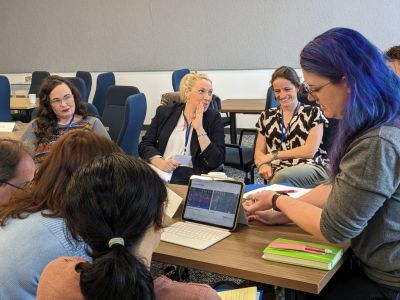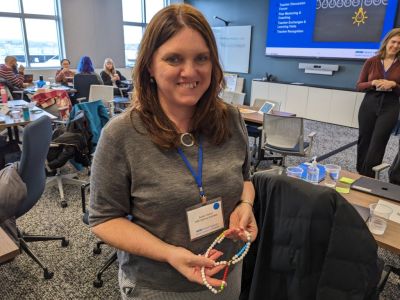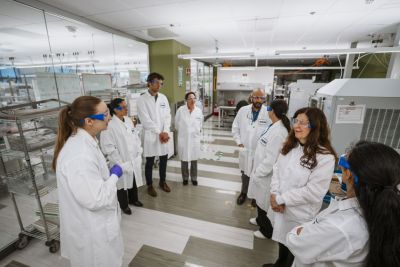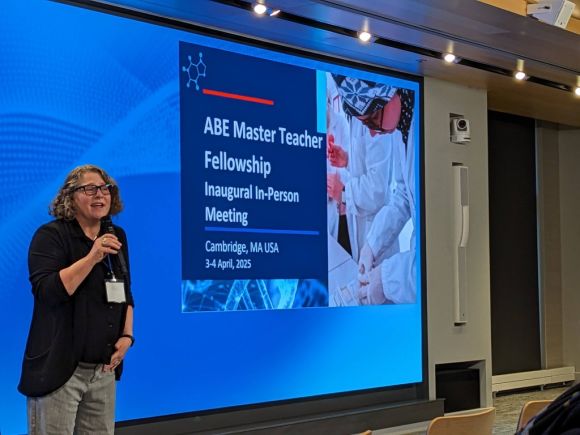Although the Amgen Biotech Experience (ABE) has been around for more than 35 years, something special has happened in the past 5 years that has had a seismic impact on the program—the Master Teacher Fellowship. Speaking to a room of more than 30 ABE Master Teacher Fellows last month in Boston, ABE’s Jessica Juliuson said, “The projects you have done have really changed the program, and they have changed the program for the better.”
The Master Teacher Fellowship, offered each year, is a stipended professional program that gives selected ABE teachers the opportunity to develop their own materials and resources as well as to participate in special professional learning.

From applying ABE labs to understanding local diseases to conducting DNA barcoding with local wildflowers, these Fellows are constantly innovating how biotechnology is taught in the classroom—advances fueled by their own passion for continuous learning. Nowhere was that passion more evident than at the Master Teacher Fellowship Meeting in April, which brought together teachers from sites around the world to learn and share best practices.
Reflecting on the meeting, Michael Lobdell of ABE Rhode Island marveled at how much time they all spent together in one room and yet still “had a great time.” Indeed, the energy in the room was palpable, as teachers exchanged insights and exciting new ideas.
In one roundtable discussion, for example, Fellows explored how to keep graduating students engaged as the year draws to a close and they have already received their university acceptances. “I don’t care” is a universal sentiment expressed by students at varying sites, the teachers shared, and addressing that apathy requires a new way of thinking about classroom engagement. Many teachers turn to independent research projects that allow students to pursue their interests and ensure that completion is required for both the course and graduation. Others use the time to think about future workplace skills and career pathways.

Throughout the meeting, teachers brainstormed new ways to introduce foundational concepts in biotechnology. For example, Susan Senior from ABE Australia shared that she is piloting the use of magnetic bead strings to teach students about plasmid configuration. Teachers like Jodie Spitze of ABE's former Washington State program site eagerly interacted with the plasmid beads and brainstormed possible activities with Senior.
“One of the things I love most about this program is when we see one teacher connect with another teacher,” said Scott Heimlich, president of the Amgen Foundation in a welcome address at the meeting. “The community that has sprung up around this program, among teachers in a given region and across regions, makes a difference in the lives of students.”
At the Boston meeting, teachers also learned about the latest in biotech manufacturing firsthand by touring Amgen’s Massachusetts facilities, visiting several labs, and meeting with various Amgen scientists in a speed-networking session. For many scientists, these interactions felt full circle, as their journeys in science began with a single teacher.

“None of us would be here today if we didn't have a teacher, an educator—you know, someone along our journey, along our career path,” said Margaret Faul, site lead at Amgen Massachusetts to the Fellows in Boston. “We need the scientific workforce for the future. And the scientific workforce comes from the teachers and what you do in the classroom to be able to drive the creativity and the mindset for students moving forward.”
